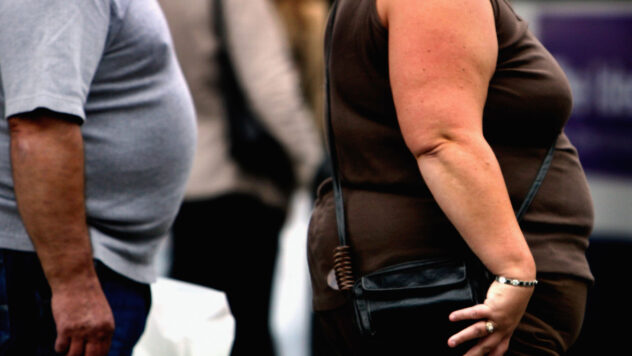
Obese people experience discrimination in many areas of their lives, and the workplace is no exception.
The Economist writes about this, citing a recent study by the British think tank Institute for Employment Studies.
Research has long shown that obese workers, defined as workers with a body mass index (BMI) of 30 or more, earn significantly less than their leaner colleagues.
Currently watching
In America, several states and local governments are considering passing laws against such treatment. On November 22, one of these bans came into force in New York.
However, the costs of weight discrimination may be even greater than previously thought.
“The overwhelming evidence is that only obese women face a wage penalty for being obese,” the Institute for Employment Studies wrote in a recent report.
The study expresses a view that is widely accepted in scientific papers. To test it, The Economist analyzed data on 23,000 workers from the Bureau of Labor Statistics' American Time Use Study. The publication's calculations showed that, in fact, obesity negatively affects the earnings of both women and men.
The data analyzed covers men and women aged 25 to 54 working full time. At the aggregate level, it is true that men's BMI is not related to their earnings. However, the situation changes for men with higher education. For them, obesity is associated with a nearly 8% decline in wages, even after controlling for the separate effects of age, race, higher education, and marital status.
Want to rest? Come to Facti.GAMES!
When the analysis was repeated using another data set covering almost 90 thousand people obtained from the US Department of Health, the publication obtained similar results.
“The finding that especially educated workers are penalized for their weight holds true for both sexes.” Moreover, the higher the level of education, the greater the fine. We found that obese men with a bachelor's degree earned 5% less than their thinner counterparts, and men with a college degree earned 14% less. True, it’s even worse for obese women: for them the same figures are 12% and 19%, respectively, writes The Economist.
The field of activity also matters
When the figures were analyzed for individual professions and industries, it was found that the greatest inequality was observed in highly skilled professions.
For example, obese workers in healthcare earn 11% less than their thinner colleagues; workers in management positions earn about 9% less on average. At the same time, in industries such as construction and agriculture, obesity is actually associated with higher wages.
“These results suggest that the cumulative costs of wage discrimination borne by overweight workers in America are very large,” The Economist points out.
The publication writes that assuming that obese women, but not men, face a penalty of 7% of wages (the average for all such women in the publication's sample), and this is the same regardless of their level of education.
“Then calculations by eye show that the total costs for them are about $30 billion per year. When you factor in the discrimination faced by men, as well as the higher wage penalty for more educated women (who also tend to earn more), the total cost for this expanded group more than doubles to $70 billion a year. , writes the magazine.
The publication concludes that in cities such as San Francisco and Washington, discrimination based on appearance is already prohibited.
A number of states, including Massachusetts, New York, New Jersey and Vermont, are considering similar bills.
— The ban, which took effect in New York on November 22, prohibits weight discrimination in employment, housing and public accommodations such as hotels and restaurants. Alas, he is unlikely to achieve great results, the publication writes.
The Economist points out that when their study limited data to workers in Michigan, where a similar ban has been in place for nearly 50 years, they found that the penalty for obesity was no lower than the average in America.
“Outlawing prejudice is one thing.” Eradicating them from society is quite another, the magazine concludes.

